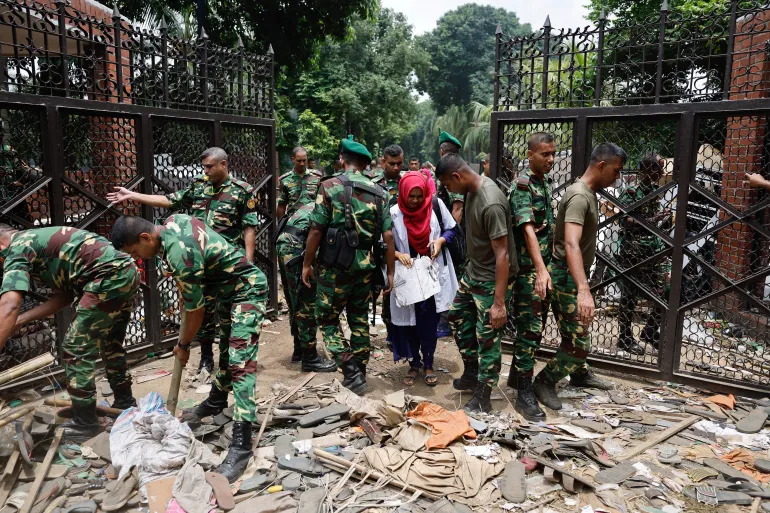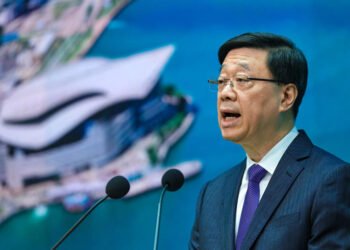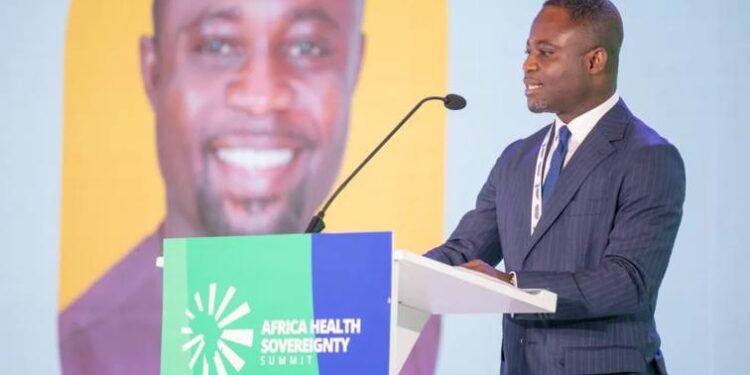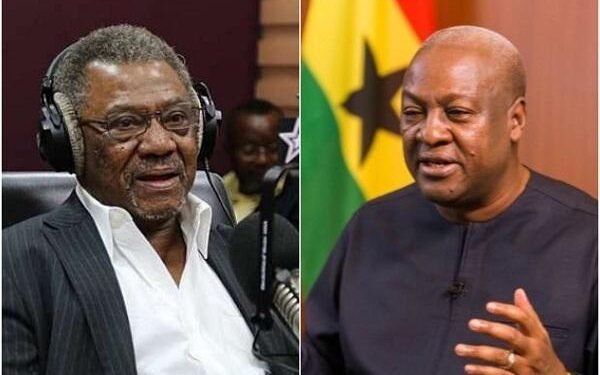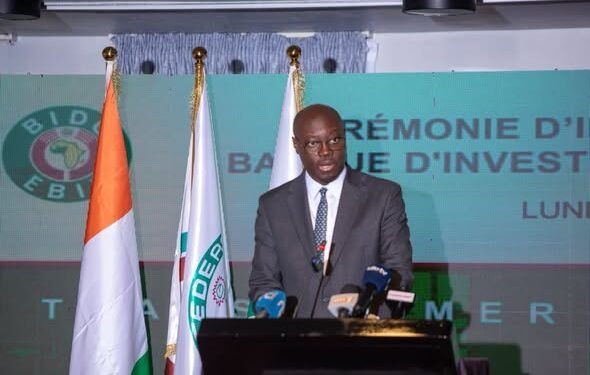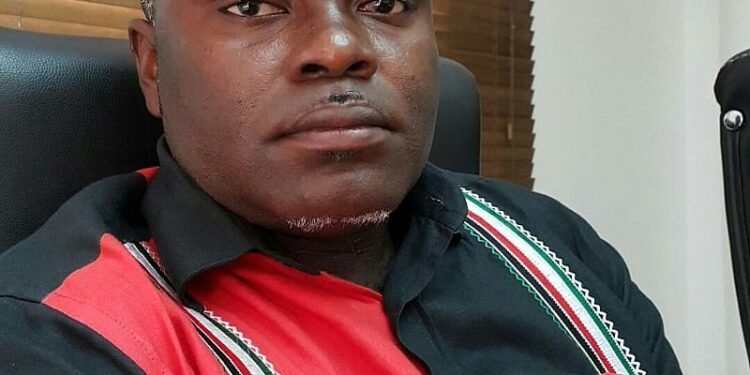The President of Bangladesh has dissolved the country’s parliament.
This comes a day after longtime Prime Minister Sheikh Hasina resigned and fled the country following weeks of deadly unrest.
President Mohammed Shahabuddin made the announcement after a scheduled meeting between the protest organisers and the army chief, General Waker-Uz-Zaman.
Following Hasina’s resignation, General Waker-Uz-Zaman said that he was temporarily taking control of the country as soldiers tried to stem the growing unrest.
He stated that he had held talks with leaders of major political parties – excluding Hasina’s long-ruling Awami League – and announced that an interim government would run Bangladesh.
He also promised to investigate the deaths of at least 135 people across Bangladesh since mid-July in some of the country’s worst bloodshed since the 1971 war of independence.
“Keep faith in the military. We will investigate all the killings and punish the responsible,” he said.
However, student protest leaders have repeatedly stated that they would not accept an army-led government.
They had given “an ultimatum,” demanding that parliament that should be dissolved or else they would resume protests, and their demand was granted.
The streets of the capital were largely quiet on Tuesday as many businesses opened up again, but tension still lingered in the air as the movement called for calm as they put forward a list of names for the new interim government.
The office of the President, Mohammed Shahabuddin, also announced that former Prime Minister and opposition leader, Begum Khaleda Zia had been officially released from years of house arrest and given a full presidential pardon.

Shahabuddin noted that the release of the opposition Bangladesh Nationalist party (BNP) Chair and Hasina’s nemesis, Zia, 78, who was convicted in a graft case in 2018 but moved to a hospital a year later as her health deteriorated, was “unanimously decided.”
She has denied the charges against her.
Zia’s party confirmed her release.
“She is now freed,” a Bangladesh National Party (BNP) party spokesman, AKM Wahiduzzaman, told t news agency
Protestors Seek Muhammad Yunus As Interim Government’s Chief Adviser
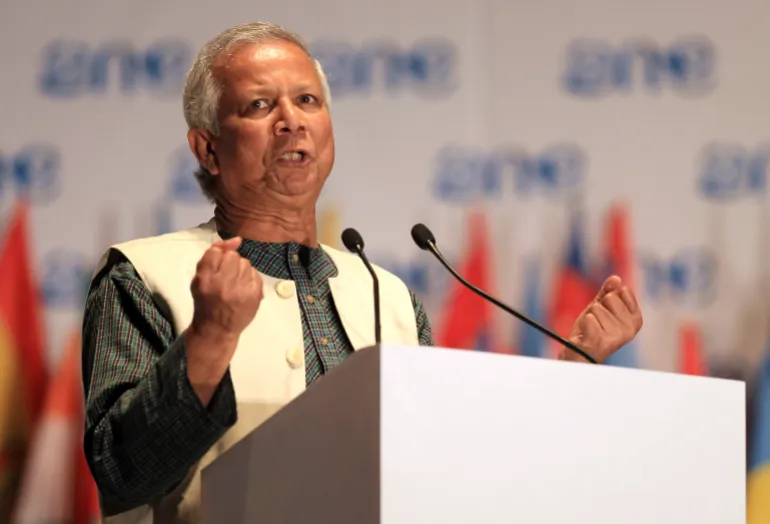
The coordinators of the student protests called for the formation of a new interim government with the economist and Nobel peace laureate, Muhammad Yunus as its Chief Adviser.
“In Dr. Yunus, we trust,” Asif Mahmud, a leader of the Students Against Discrimination (SAD) group, wrote on Facebook.
Yunus, 84, and his Grameen Bank won the 2006 Nobel peace prize for its work to lift millions out of poverty by granting tiny loans of under $100 to the rural poor of Bangladesh, but he was indicted by a court in June on charges of embezzlement that he denied.
According to a video released on Facebook, Nahid Islam, one of the key coordinators of Bangladesh’s student protest movement, averred, “We have given our blood, been martyred, and we have to fulfil our pledge to build a new Bangladesh.”
“No government other than the one proposed by the students will be accepted. As we have said, no military government, or one backed by the military, or a government of fascists, will be accepted.”
Nahid Islam
Islam added that the protesters would propose more names for the cabinet and suggested that it would be difficult for those in power to ignore their wishes.
Yunus, who is currently in Paris for the Olympics, called Hasina’s resignation the country’s “second liberation day.”
A spokesperson for Yunus revealed that he had accepted the students’ request to be an adviser to the interim government.
The spokesperson was quoted as saying that the Nobel laureate would return to Bangladesh “immediately” after a minor medical procedure in Paris.
READ ALSO: 65% Of Bono East Voters Express Strong Dissatisfaction

